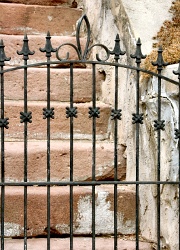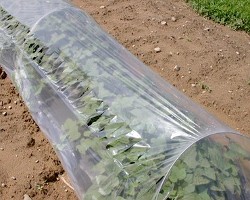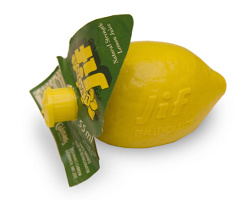How can I reduce electricity wastage in the kitchen?
 Our “how can I reduce this?” questions are often about how to reduce physical waste but it’s important to stop wasting power too – and I’ll like to hear your tips & helpful hints on this: how can I reduce electricity wastage in the kitchen?
Our “how can I reduce this?” questions are often about how to reduce physical waste but it’s important to stop wasting power too – and I’ll like to hear your tips & helpful hints on this: how can I reduce electricity wastage in the kitchen?
Everyone knows not to boil too much water in the kettle – just what’s needed – and most people know to keep their fridge coils free from dust to make them more efficient. We’ve also touched on this topic in the past when talking about using ovens efficiently when baking and about reducing energy usage in the house in general – and we’ve had some great advice. For example:
- Bellen, Rob and chicgeek all recommended using spare oven space to bake potatoes or other root veg for future use; Bellen also suggested roast chicken parts for lunches & chicgeek stews.
- damnthebroccoli suggested planning baking to coincide with other run-of-the-mill oven usage so it’s only on once.
- Bobbie urged us to put lids on a pot, use crock pots/slow cookers and in winter, open the oven door after baking so the warm air escapes into the house rather than being “extracted” outside.
- kittykat advocated using “ice boxes” in the winter – allowing you to turn off your fridge for weeks at a time.
- And Alice has said that if she does accidentally boil a bit too much water, she puts it in a thermos flask to keep it warm so it doesn’t require as much energy to boil again.
All great ideas – do you have anything else to add?



 Sticking in the garden after yesterday’s “how to make cloches” question, I’m a member of
Sticking in the garden after yesterday’s “how to make cloches” question, I’m a member of  I thought we’d already covered this but apparently not!
I thought we’d already covered this but apparently not! For some reason, our local supermarket has stopped selling lemon juice in sensible containers and only sells it in plastic lemon-shaped bottles now. (Not actually Jif lemons but similar, with a flat bottom.)
For some reason, our local supermarket has stopped selling lemon juice in sensible containers and only sells it in plastic lemon-shaped bottles now. (Not actually Jif lemons but similar, with a flat bottom.) We’ve had an email from Tasha:
We’ve had an email from Tasha:














